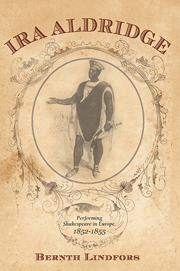Book contents
- Frontmatter
- Contents
- List of Illustrations
- Acknowledgments
- Abbreviations
- Introduction
- 1 Making Up a Company
- 2 Brussels
- 3 Navigating up the Rhine
- 4 Moving into the Interior
- 5 Berlin
- 6 On to Vienna
- 7 Hungarian Rhapsodies
- 8 Comparisons and Contrasts
- 9 Personal and Personnel Matters
- 10 Hungarian Rap Sheet
- 11 Prussia, Germany, Switzerland
- 12 Homeward Bound
- 13 Interpreting Shakespeare
- 14 Further Travels
- Appendixes
- Notes
- Selected Bibliography
- Index
- Miscellaneous Endmatter
7 - Hungarian Rhapsodies
Published online by Cambridge University Press: 05 December 2013
- Frontmatter
- Contents
- List of Illustrations
- Acknowledgments
- Abbreviations
- Introduction
- 1 Making Up a Company
- 2 Brussels
- 3 Navigating up the Rhine
- 4 Moving into the Interior
- 5 Berlin
- 6 On to Vienna
- 7 Hungarian Rhapsodies
- 8 Comparisons and Contrasts
- 9 Personal and Personnel Matters
- 10 Hungarian Rap Sheet
- 11 Prussia, Germany, Switzerland
- 12 Homeward Bound
- 13 Interpreting Shakespeare
- 14 Further Travels
- Appendixes
- Notes
- Selected Bibliography
- Index
- Miscellaneous Endmatter
Summary
While waiting for arrangements for his engagement in Pest to be settled, Aldridge accepted an invitation to perform in Pressburg (now Bratislava) on the fifteenth and seventeenth of March. He led off with Othello on the first night and followed with both Macbeth and The Padlock on the second evening. Aldridge's Shakespearean roles were received with acclamation, even though he performed them in English: “The foreign words that he spoke communicated their full meaning through the universally comprehensible language of the soul.” However, the “natural crudity of the Negro slave Mungo, who clowned around wildly,” was deemed to be aesthetically unacceptable. “It hurt us to see the great actor waste his admirable talents on such a common farce,” especially after his “unsurpassed performances of Othello and Macbeth.”
Even more surprising was the reaction of viewers to members of Aldridge's troupe, who, “although they may be of subordinate rank in England, acted masterfully together in collaboration and ensembles, in the drinking and intoxication scenes. There were continually clusters of minutes when nothing was spoken, yet which were played with that much more meaning, and a naturalness in ordinary dialogue that one seldom finds.” One female commentator expressed admiration for the handsome figures and graceful manners of Mr. Stanton and Mr. Herrmann.
- Type
- Chapter
- Information
- Ira AldridgePerforming Shakespeare in Europe, 1852-1855, pp. 105 - 120Publisher: Boydell & BrewerPrint publication year: 2013

